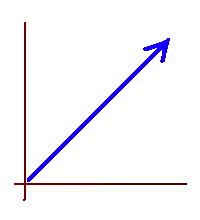Students have their own expectations about how much they should learn, and how fast. Usually these expectations differ from what their teacher expects them to do. Generally, math syllabuses are designed with an “ideal student” in mind. The material is covered and organized in a way that suites the teachers, and the small percentage of “straight A” students. Whoever can keep up with that pace, gets the A, others get lower grades.
In my one-on-one tutoring sessions, I have the opportunity to closely observe student reactions to their math workload, and to the pace at which their teacher is covering the material. Often I find myself addressing and somehow mitigating the emotional stress some students are under because of the huge chasm between their teacher expectations and their own expectations about their performance, and their learning pace. Sometimes, while going through their homework students make comments like: “Boy! They really want to drill this stuff into your head, don’t they?” Often all these students want is to get it done and over with as soon as possible, and forget about it.
Recently one student told me about the freezing fear she experienced in elementary school when one of her teachers timed the class on multiplication exercises. She felt terrified every single time they had such timed drills. All she learned from those experiences was that math is awful, something to avoid; that she was bad at math, and that she was going to struggle with math for the rest of her school life, which she did.





No comments:
Post a Comment